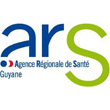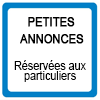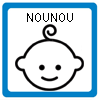Blada.com
vendredi 04 juillet
Boîtes aux lettres
Courrier des lecteurs
Petites annonces
Emploi / Formation
Covoiturage
Infos citoyennes
Infos citoyennes
25/10/22
Dépistage des cancers : un rôle majeur pour les médecins traitants
 Début décembre puis deux fois par an, la CGSS enverra aux médecins traitants la liste de leurs patients n’ayant pas réalisé leurs dépistages du cancer colorectal, du sein et/ou du col de l’utérus dans les intervalles recommandés. Le dépistage est moins pratiqué en Guyane que dans le reste de la France, pays où la participation est la plus faible au sein de l’OCDE. Le dépistage précoce réduit nettement la mortalité due à ces cancers. Dans d’autres pays et dans deux départements où elle a été testée, cette information aux médecins traitants a montré son efficacité.
Début décembre puis deux fois par an, la CGSS enverra aux médecins traitants la liste de leurs patients n’ayant pas réalisé leurs dépistages du cancer colorectal, du sein et/ou du col de l’utérus dans les intervalles recommandés. Le dépistage est moins pratiqué en Guyane que dans le reste de la France, pays où la participation est la plus faible au sein de l’OCDE. Le dépistage précoce réduit nettement la mortalité due à ces cancers. Dans d’autres pays et dans deux départements où elle a été testée, cette information aux médecins traitants a montré son efficacité.
Pour améliorer le taux de participation aux dépistages organisés, la Caisse d’Assurance Maladie entreprend une nouvelle action d’aller-vers. Elle enverra aux médecins traitants une liste de leurs patients n’ayant pas réalisé leurs dépistages du cancer (cancer colorectal, du sein et du col de l’utérus) dans les intervalles recommandés. En effet, il existe de nombreux éléments de preuve du rôle déterminant que jouent les médecins généralistes dans la participation aux dépistages.
Cette action, entreprise pour la première fois en décembre 2022, sera renouvelée deux fois par an. Les médecins recevront leurs premières listes entre le 7 et le 12 décembre (par courrier, puis via AmeliPro par la suite). Avant cela, une campagne mail est réalisée, depuis la semaine dernière, à destination des assurés concernés par ces dépistages organisés. Ce courriel les informe du dispositif et leur permet de refuser d’apparaître sur les listes envoyées à leur médecin traitant, s’ils le souhaitent. La CGSS réalisera également des communications aux médecins à partir de la mi-novembre et jusqu’en janvier 2023.
Des taux de dépistage plus faibles qu’ailleurs
En Guyane, le dépistage organisé du cancer du sein, du cancer colorectal et du cancer du col de l’utérus est une fois et demie à cinq fois moins pratiqué que dans le reste de la France. Notre pays est lui-même en queue de peloton des pays européens. Cette participation est nettement en deçà des objectifs européens et des objectifs à l’horizon 2025.

Plusieurs études montrent qu’un dépistage précoce améliore le diagnostic et réduit la mortalité liée à ces cancers, souligne Santé publique France :
- S’agissant du cancer du sein, le taux de survie à 5 ans est de 99 % pour un cancer détecté à un stade précoce, mais il tombe à 26 % pour un cancer métastasé. Une étude de l’Institut national du cancer (Inca) démontre que les cancers diagnostiqués via le programme de dépistage organisé sont de meilleur pronostic et nécessitent moins de chirurgies mutilantes et moins de chimiothérapies.
- Détecté tôt, un cancer colorectal se guérit dans 90% des cas. Là encore des chimiothérapies sont évitées.
- Grâce au dépistage, 90 % des cancers du col de l’utérus peuvent être évités, en traitant les lésions avant le stade cancéreux. La vaccination HPV des jeunes (filles et garçons) est aussi un moyen efficace de prévenir ce cancer. Les deux approches sont complémentaires. L’Organisation Mondiale de la Santé estime que l’on pourrait éradiquer le cancer du col de l’utérus en combinant dépistage et vaccination contre les papillomavirus.
Des dispositifs pour faciliter l’accès au dépistage organisé
Plusieurs actions ont été menées pour faciliter l’accès au dépistage organisé. S’agissant du cancer colorectal, les médecins généralistes, gynécologues et gastroentérologues, ainsi que les centres de santé peuvent remettre des kits de dépistage permettant de réaliser le dépistage chez soi. Depuis mars, ils peuvent également être remis par les pharmaciens ou commandés en ligne et livrés à domicile.
Pour le cancer du col de l’utérus, les prélèvements cervico-utérins peuvent être réalisés par les médecins généralistes, les gynécologues, les médecins biologistes, les sages-femmes et dans les centres d’examen de santé. Dans un futur proche, l’auto-prélèvement sera possible dans des situations précisées par la Haute Autorité de santé (HAS).
Méconnaissance de la pathologie, de son dépistage et le sentiment de ne pas être concerné
Pour lever les freins à ces dépistages organisés, les médecins traitants ont un rôle majeur à jouer. En effet, outre les difficultés d’accès au dépistage, Santé publique France note que « la méconnaissance de la pathologie et de son dépistage ainsi que le fait que les patients ne se sentent pas concernés (âge, absence de symptômes) » figurent parmi les premières causes de non-participation au dépistage organisé. Ce sont autant de freins que les médecins traitants peuvent lever au cours de leurs consultations.
Les médecins traitants réalisent certains dépistages (prélèvement cervico-utérin) ou les prescrivent. « Dans le cadre du dépistage du cancer colorectal, l’évaluation des facteurs de risque du patient est déterminante, avant de remettre le test et d’expliquer ses modalités de réalisation et les conséquences en cas de test positif », souligne Santé publique France.
Dans d’autres pays que la France, il apparaît que « lorsque le médecin traitant est impliqué, il joue un rôle positif dans l’atteinte des populations non participantes, notamment par l’identification des patients éligibles », y compris par un simple appel à ses patients. La transmission des listes des patients concernés aux médecins traitants a été testée en Loire Atlantique et en Vendée, en 2015 et 2016. L’analyse a révélé une plus grande participation des patients après que les médecins ont reçu cette liste nominative.
Pour rappel, le cancer du sein est la première cause de cancer chez la femme et a provoqué 12 100 décès en France en 2018. Le cancer colorectal est la deuxième cause de cancer chez la femme et la troisième chez l’homme et est à l’origine de 17 100 décès cette même année. Quant au cancer du col de l’utérus, qui selon l’OMS pourrait être éradiqué, il provoque 1 100 décès en France par an. C’est donc plusieurs dizaines de décès qui pourraient être évités en Guyane chaque année, en renforçant la vaccination HPV et le dépistage.
 At the beginning of December and then twice a year, the CGSS will send to treating physicians the list of their patients who have not carried out their colorectal, breast and/or cervical cancer screenings. uterus within the recommended intervals. Screening is practiced less in Guyana than in the rest of France, the country where participation is the lowest within the OECD. Early detection significantly reduces mortality from these cancers. In other countries and in two departments where it has been tested, this information to treating physicians has shown its effectiveness.
At the beginning of December and then twice a year, the CGSS will send to treating physicians the list of their patients who have not carried out their colorectal, breast and/or cervical cancer screenings. uterus within the recommended intervals. Screening is practiced less in Guyana than in the rest of France, the country where participation is the lowest within the OECD. Early detection significantly reduces mortality from these cancers. In other countries and in two departments where it has been tested, this information to treating physicians has shown its effectiveness.
To improve the rate of participation in organized screenings, the Caisse d'Assurance Maladie is undertaking a new outreach action. It will send referring physicians a list of their patients who have not completed their cancer screenings (colorectal, breast and cervical cancer) within the recommended intervals. Indeed, there is ample evidence of the instrumental role GPs play in participation in screenings.
This action, undertaken for the first time in December 2022, will be repeated twice a year. Doctors will receive their first lists between December 7 and 12 (by mail, then via AmeliPro thereafter). Before that, an email campaign has been carried out since last week, aimed at policyholders concerned by these organized screenings. This email informs them of the device and allows them to refuse to appear on the lists sent to their attending physician, if they wish. The CGSS will also send out communications to doctors from mid-November until January 2023.
Lower screening rates than elsewhere
In Guyana, organized screening for breast cancer, colorectal cancer and cancer of the cervix is one and a half to five times less practiced than in the rest of France. Our country is itself at the back of the pack of European countries. This participation is clearly below the European objectives and the objectives for 2025.

Several studies show that early detection improves diagnosis and reduces mortality linked to these cancers, emphasizes Public Health France:
- For breast cancer, the 5-year survival rate is 99% for cancer detected at an early stage, but drops to 26% for cancer metastasis. A study by the National Cancer Institute (Inca) shows that cancers diagnosed through the organized screening program have a better prognosis and require fewer mutilating surgeries and less chemotherapy.
- Detect early, colorectal cancer is curable in 90% of cases. Again chemotherapy is avoided.
- Thanks to screening, 90% of cervical cancers can be prevented by treating lesions before the cancerous stage. HPV vaccination of young people (girls and boys) is also an effective way to prevent this cancer. The two approaches are complementary. The World Health Organization estimates that cervical cancer could be eradicated by combining screening and vaccination against papillomaviruses.
Devices to facilitate access to organized screening
Several actions have been taken to facilitate access to organized screening. With regard to colorectal cancer, general practitioners, gynecologists and gastroenterologists, as well as health centers can provide screening kits allowing screening to be carried out at home. Since March, they can also be handed over by pharmacists or ordered online and delivered to your home.
For cancer of the cervix, cervico-uterine samples can be taken by general practitioners, gynecologists, biologists, midwives and in centers health examination. In the near future, self-sampling will be possible in situations specified by the French National Authority for Health (HAS).
Ignorance of the pathology, its screening and the feeling of not being concerned
To remove the obstacles to these organized screenings, treating physicians have a major role to play. Indeed, in addition to the difficulties of access to screening, Public Health France notes that " the lack of knowledge of the pathology and its screening as well as the fact that patients do not feel concerned (age, absence of symptoms) » are among the leading causes of non-participation in organized screening. These are all obstacles that treating physicians can remove during their consultations.
Treating physicians carry out certain screenings (cervico-uterine sample) or prescribe them. "In the context of colorectal cancer screening, the assessment of the patient's risk factors is decisive, before giving the test and explaining how it is to be carried out and the consequences in the event of a positive test", stresses Santé public France.
In countries other than France, it appears that "when the attending physician is involved, he plays a positive role in reaching non-participating populations, in particular by the identification of eligible patients”, including by a simple call to his patients. The transmission of lists of patients concerned to treating doctors was tested in Loire Atlantique and Vendée, in 2015 and 2016. The analysis revealed greater patient participation after doctors received this list of names.
As a reminder, breast cancer is the leading cause of cancer in women and caused 12 100 deaths in France in 2018. Colorectal cancer is the second leading cause of cancer in women and third in men and caused 17 100 deaths that same year. As for cancer of the cervix, which according to the WHO could be eradicated, it causes 1 100 deaths in France per year. Several dozen deaths could therefore be avoided in French Guiana each year, by strengthening HPV vaccination and screening.
Raccourcis


passer une petite annonce

passer une annonce de covoiturage


passer une annonce d’emploi







associations, postez vos actualités

participez au courrier des lecteurs
La Guyane c’est ici
La qualité de l’Air avec
ATMO
Photothèque

Lancements 2022
Vol 259 Ariane 5




